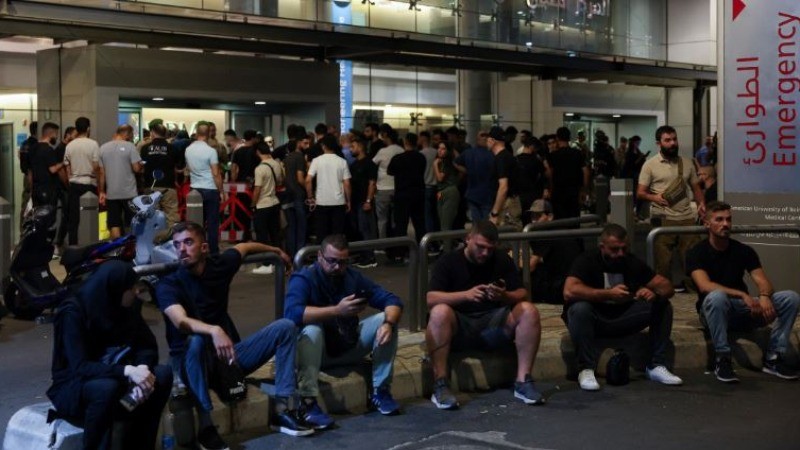
Lebanon underwent a series of explosions on Wednesday, September 18, as residential solar energy systems exploded in various parts of Beirut. These blasts follow a recent wave of explosions involving pagers and walkie-talkies used by the militant group Hezbollah.
Lebanon’s Civil Defense responded to numerous fires across the country, including several neighborhoods in Beirut. In the southern town of Nabatiyeh, firefighters battled blazes that damaged 60 homes, 15 cars, and several motorcycles. The cause of these fires was linked to the explosions of telecom devices and two fingerprint detection tools.
Amid escalating tensions, thousands of civilians from northern Israel and southern Lebanon have fled their homes due to ongoing missile and drone strikes. The conflict has claimed the lives of hundreds of Hezbollah fighters and around 50 Israelis.
Israel’s Defense Minister, Yoav Gallant, announced a shift in military strategy, stating that Israeli forces would focus on the northern front, near the Lebanese border. He emphasized that this marked a "new phase" in the war against Islamist groups in the region, raising concerns of a broader conflict.
The attacks have been seen as part of rising hostilities, although Israel has not claimed responsibility for the sophisticated sabotage of the outdated communication devices such as pagers and walkie-talkies.
Gallant highlighted the shift in strategy by saying, "The center of gravity is shifting north, which means we are reallocating forces, resources, and energy toward the northern front. We are entering a new phase in the war, and we must adapt accordingly."
What Happened in the Explosions? On Tuesday, hundreds of pagers used by Hezbollah members exploded almost simultaneously in Lebanon and Syria. These blasts resulted in the deaths of at least 12 people, including two children, and injured thousands more.
What Devices Were Affected? A Hezbollah official confirmed that walkie-talkies used by the group exploded on Wednesday. Additionally, home solar energy systems detonated in several areas of Beirut and southern Lebanon, injuring a young girl.
Hungary Rejects Claims of Involvement in Lebanon's Pager Blasts, Denies Manufacturing Roll
How Did Hezbollah’s Pagers Become Weapons? Exploring the Beirut Blasts
Hezbollah Threatens Retaliation After Deadly Pager Explosions